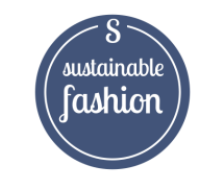In recent months, interest in identifying the top winter holiday destinations in Europe has surged by 80%, as individuals begin to organize their travels for the cooler seasons. A growing trend among travelers is to limit their luggage to just hand carry to save on expenses. However, packing for colder climates can be a challenge, especially when trying to fit bulky sweaters and warm socks instead of lightweight summer attire. To assist in this endeavor, the travel experts at SkyParkSecure have shared invaluable advice on efficiently packing your 10kg suitcase for destinations with cooler temperatures.
As the winter season approaches, bringing a cooler atmosphere and the anticipation of festive celebrations, many are in the process of planning their winter getaways. The task of minimizing expenses by opting for hand luggage only becomes more daunting when faced with the necessity to pack warm clothing such as sweaters and socks. Yet, with some preparation and these essential tips, packing your 10kg suitcase for a winter holiday is entirely feasible, as explained by the specialists at SkyParkSecure.
Adopt the Use of Packing Cubes
The use of packing cubes has gained immense popularity over the past year, with a 54% increase in searches. These compact organizers not only aid in categorizing your clothing, accessories, and toiletries for easy access upon arrival but also compress your items to afford you additional space in your 10kg suitcase. Available in various sizes, the smaller cubes are particularly suitable for hand luggage, offering a significant advantage in segregating laundry post-vacation, simplifying the process of handling your washing.
Leverage Vacuum Bags
Vacuum bags, much like packing cubes, are an excellent method to compact your clothing and significantly expand the space in your 10kg suitcase. They outperform packing cubes in terms of space efficiency and are complemented by portable mini pumps that fit within your luggage, ensuring you have ample space for the return journey. However, it’s advisable to check if your accommodation provides an iron since these bags can leave garments slightly creased.
Pre-plan Your Wardrobe
SkyParkSecure’s research indicates that nearly 40% of British travelers plan their holiday outfits in advance, a strategy that reduces the bulk of your luggage. For winter vacations, consider versatile garments that can be worn multiple times, such as a single sweater over various t-shirts, and evaluate whether multiple pairs of shoes are necessary.
Choose Your Fabrics Wisely
The desire to avoid wearing the same outfit repeatedly often leads to overpacking, especially in accommodations without laundry facilities. However, certain fabrics, like wool, are less prone to odors and stains and dry quickly if washed. Wool garments also resist wrinkling, an advantage when using vacuum bags. Opt for materials like Merino, alpaca, and hemp wool, and for outerwear, down jackets are compact, weather-resistant, and keep you warm without occupying much space in your 10kg suitcase.
Opt for Layering
To accommodate a variety of clothing options without resorting to bulky items, consider layering thinner, insulating garments. Base layers, light sweaters, and long-sleeved shirts made from insulating materials can keep you warm and significantly reduce the space needed in your suitcase.
Dress Strategically for the Airport
Despite all efforts, fitting multiple bulky items in your 10kg suitcase may be impossible. The solution is to wear your heaviest clothes during travel, such as winter coats and thick sweaters, possibly layering t-shirts underneath and wearing extra socks. While this might lead to a warmer experience at the airport, these items can typically be stored in the overhead locker on the plane, ensuring you have ample clothing for your holiday without exceeding your luggage limit.

